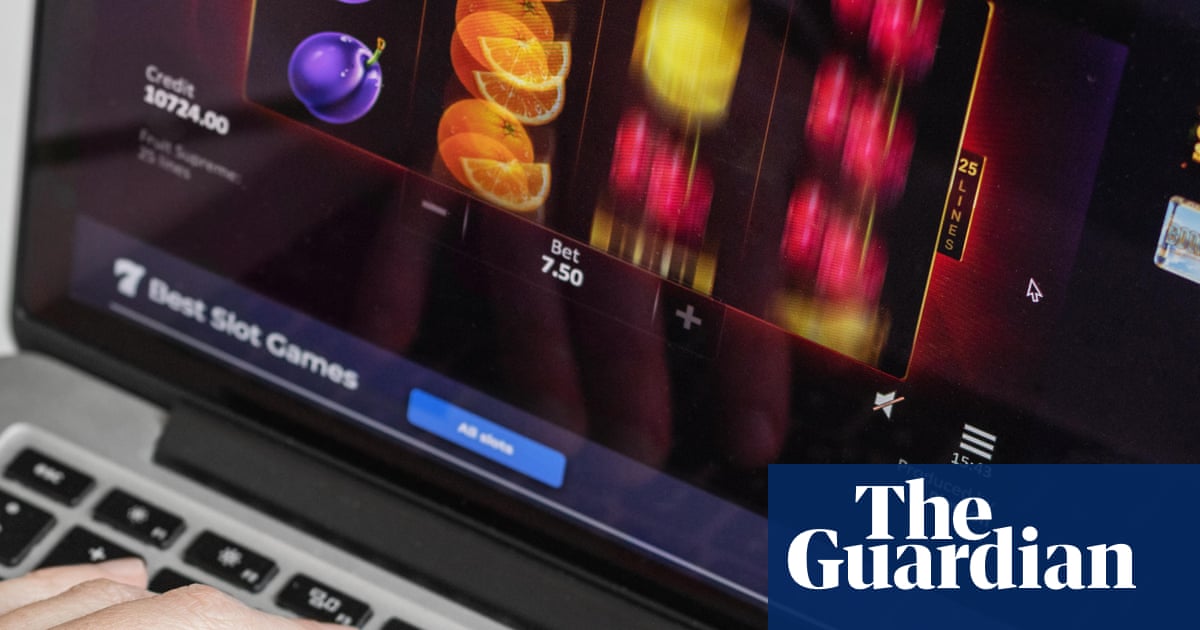Gambling losses in online gaming very skewed to deprived areas – UK study
Major report raises concern at low intervention by firms and puts pressure on government review

More than 420,000 British gamblers lose at least £2,000 a year, according to a major report that warns losses on the most addictive products are “strongly skewed” towards deprived areas.
The report lays bare the punishing losses incurred by the heaviest gamblers and raises “concern” at the low level of intervention by gambling companies to prevent them suffering harm.
Its findings sparked renewed calls for a government review of gambling regulations, due within days, to include tough affordability checks and stake limits on online slot machines, which allow punters to bet large sums on a single “spin”.
Researchers from the National Centre for Social Research (NatCen) and the University of Liverpool raised particular concerns about online gaming, a £4bn-a-year category that includes online bingo and casino, but which is dominated by virtual slots.
An estimated 129,000 gaming customers lost at least £2,000 in a year, more than the average home gas and electricity tariff, according to analysis of 140,000 accounts with seven gambling firms.
In practice the number of people suffering such losses is likely to be much higher, because the data covers just 37.5% of the British online gaming market.
Virtual slots were singled out for particular concern, with 50,000 individuals found to have played for the equivalent of eight full days in a year, losing £5,000 on average. While gambling is male-dominated overall, this group was more likely to include women.
Firms derive 40% of their slots revenue from just 1% of players, who lost an average of £10,491 each on the games, which carry disproportionately high rates of addiction.
Losses across all types of online gaming were “strongly skewed” towards the most deprived areas, the report found, with the 20% poorest regions supplying 25% of industry revenue.
Labour MP Carolyn Harris, who leads a cross-party group of MPs examining gambling harm, said: “The industry is lining its pockets with money from those who can least afford it and with the current cost of living crisis, it is even more vital that the government takes the necessary steps to protect vulnerable people immediately.”
Zoë Osmond, chief executive of the charity GambleAware, which commissioned the report, warned that “harms from gambling are falling disproportionately on the poorest communities”, with the cost of living crisis likely to exacerbate the trend.
Campaigners have called on the government to use its ongoing review to curb online slot machine stakes, similar to the £2 limit imposed on fixed-odds betting terminals (FOBTs) in 2019, among other measures such as tighter restrictions on advertising. The £10bn industry has lobbied hard against stricter regulation.
The report, carried out between 2018 and 2019, underscores the industry’s heavy reliance on a small group of heavy gamblers. The top 10% of accounts – those who wagered more than £4,568 a year – contributed 79% of operator revenue.
“This is why online gambling firms have been so resistant to affordability checks,” said Matt Zarb-Cousin, of campaign group Clean Up Gambling.
“The government must impose stake limits […] along with strict affordability checks at a threshold that protects people most impacted by the cost of living crisis.”
In sports betting, which is more popular but where average spending is lower, researchers estimated that 290,000 sports betting accounts lost more than £2,000 in a year. Activity was heavily skewed towards men, who accounted for 94% of about £5bn in annual revenue.
Researchers said they were “concerned” by the industry’s apparent lack of appetite for intervening when customers are losing large sums.
Among high spenders, those losing more than £2,000 a year, only a third received any sort of intervention, usually in the form of an email, while fewer than 1% received a phone call, the most effective interaction.
A spokesperson for the industry lobby group, the Betting and Gaming Council, said: “In 2020, operators carried out an estimated 5 million safer gambling interactions following alerts from their diagnostic systems.
“During the pandemic, members instigated a heightened monitoring system, to allow increased interactions with customers, which remain in place today. In the last year deposit limits were set on around 5 million accounts.”
